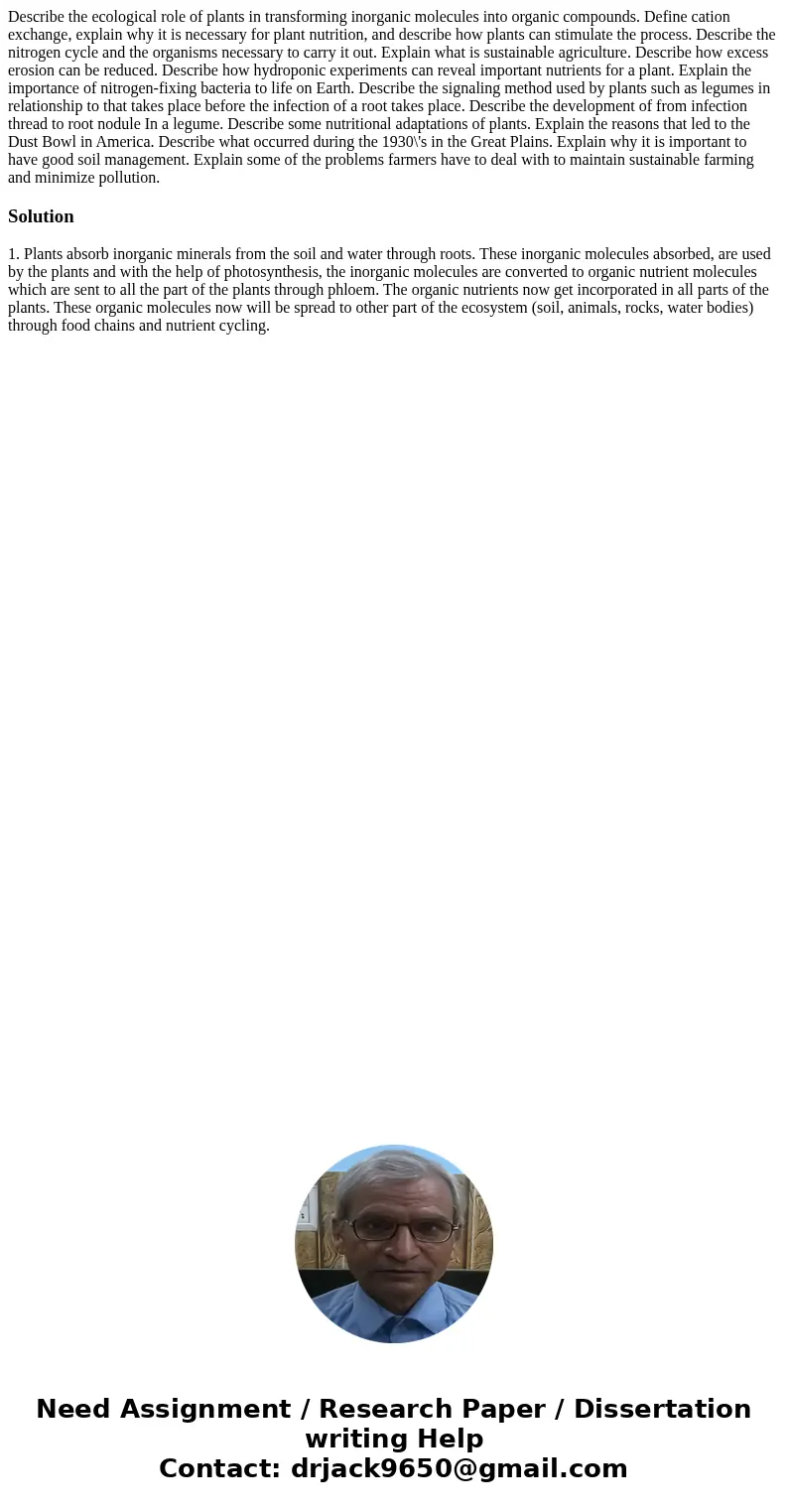Describe the ecological role of plants in transforming inorg
Describe the ecological role of plants in transforming inorganic molecules into organic compounds. Define cation exchange, explain why it is necessary for plant nutrition, and describe how plants can stimulate the process. Describe the nitrogen cycle and the organisms necessary to carry it out. Explain what is sustainable agriculture. Describe how excess erosion can be reduced. Describe how hydroponic experiments can reveal important nutrients for a plant. Explain the importance of nitrogen-fixing bacteria to life on Earth. Describe the signaling method used by plants such as legumes in relationship to that takes place before the infection of a root takes place. Describe the development of from infection thread to root nodule In a legume. Describe some nutritional adaptations of plants. Explain the reasons that led to the Dust Bowl in America. Describe what occurred during the 1930\'s in the Great Plains. Explain why it is important to have good soil management. Explain some of the problems farmers have to deal with to maintain sustainable farming and minimize pollution.
Solution
1. Plants absorb inorganic minerals from the soil and water through roots. These inorganic molecules absorbed, are used by the plants and with the help of photosynthesis, the inorganic molecules are converted to organic nutrient molecules which are sent to all the part of the plants through phloem. The organic nutrients now get incorporated in all parts of the plants. These organic molecules now will be spread to other part of the ecosystem (soil, animals, rocks, water bodies) through food chains and nutrient cycling.

 Homework Sourse
Homework Sourse